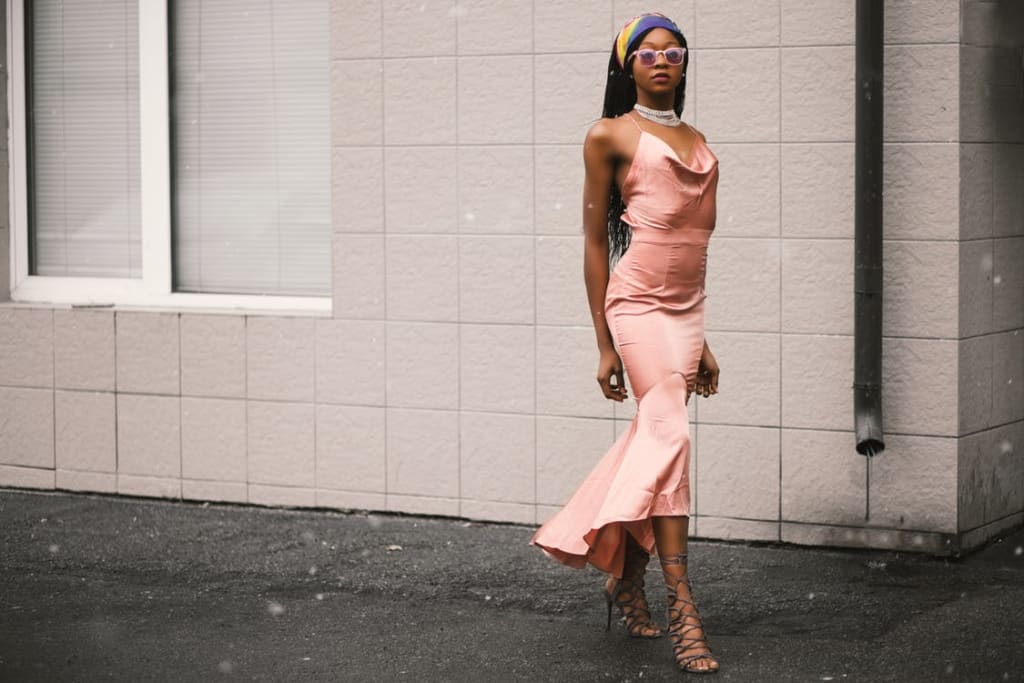
What is style, and why does it even matter?
Style is the way in which someone does something. It is the way you dress, the way you speak, the way you walk, the way you accessorize your body and do your hair; a key component in the process of building first impressions. It is incredibly important, yet there are plenty of people who argue that topics such as this one are irrelevant because “clothes are just clothes." But those people are only looking at the superficial, materialistic purpose of personal style and fashion, rather than viewing them as symbols and tools which can be used in the art of manipulating your life to your own advantage.
Before I understood the way the mind works, the clothes I would wear resembled the way I was feeling—not the way I wanted to feel—and in turn, people would treat me according to how I seemed to be treating myself—instead of how I wanted to be treated. It wasn’t until I began studying social psychology when I realized that, to some extent, the way I would dress myself was the mirror of my own thought process reflecting the person I am in my comfort zone. Once I noticed this, I started wearing outfits that made it easier for the world (and myself) to see the kind of person I wanted and deserved to be. For instance, I started wearing bright colors instead of dark ones whenever I felt sad; as a result, I felt happier and people started complementing my appearance, and treating me with a more positive attitude.
Personal stylist, blogger, and entrepreneur Lauren Messiah did this too. In one of her videos she talked about how, although her company was on the verge of breaking the million-dollar mark (and although she’s always been a very stylish woman), people kept mistaking her for an assistant, rather than recognizing her as the boss of her own company. Once she changed her wardrobe and started “dressing the part” of the successful entrepreneur she saw herself as, she got married and her company surpassed the millions. Messiah firmly believes that if you dress towards your goals you will achieve them, and she’s right. Fashion is not just something trivial you see on the runway shows, and style isn’t irrelevant, and there’s a whole psychological analysis to back that up.
Enclothed Cognition and the Effects of Formal Attire
Personal style does not determine the person you are, but the way you present yourself is the way people see you, and the way people see you is the way they treat you. For example, let’s say you see a person, walking down Madison Avenue dressed in clean, tailored, well-fitting, formal clothing. Your first impression of them will most likely be “this person looks like they have their life under control," meaning they’ve probably reached an important, perhaps admirable position in their career, and are likely worthy of respect. Consequently, you will treat them as such, and because of this you’ve now legitimized them as powerful people who deserve respect—even if the reality of who they are is totally different.
This person didn’t do anything other than act and dress a certain way; a way that portrayed a powerful image, one that you deemed worthy of approaching formally and politely. Whether you like to admit it or not, the way this person dressed determined not only the way they acted, but also the way others treated them. No one even noticed it was an act of subtle visual manipulation.
There is a very important term which describes the systematic influence the clothes have on its wearer’s psychological process known as enclothed cognition. According to this, the symbolic meaning and physical experience of wearing certain garments affects the way you carry yourself out. Take this study for example: in the first experiment, researchers found that when participants physically wore a lab coat, it “increased their selective attention compared to not wearing [one]." Basically, when you dress like a boss, you act like a boss.
There was another interesting study carried out by Columbia University in 2015, which investigated the cognitive consequences of formal clothing. Researchers predicted that “social distance in the form of politeness increases abstract thinking." They hypothesized that human beings turn to politeness and formality in socially distant, less familiar situations. These situations were linked to formal attire, which they used to try and achieve an increase in abstract thought processing. Now, abstract thought is characterized by flexibility, adaptability, and broad mental representations (all of which is very helpful when it comes to others’ first impressions of you).
The study found that we tend to relate formality with politeness, and politeness with respect, which is the result of social distance. In other words, you don’t address yourself towards a close friend the same way you do to a professor. Well, just like we use polite language in less familiar contexts, wearing formal clothing also creates a social distance which demands respect. It was scientifically proven that humans relate formal attire with following norms and obtaining respect, and therefore view a person with such style as more competent and rational. Even the participants themselves portrayed a felt power and felt deserving of higher esteem towards themselves while wearing more formal clothing.
Using Clothes as a Tool
All of this just goes to show that clothes aren’t “just clothes," they’re a symbol of what you can do and who you can be. Although your style doesn’t define you, it’s a tool which can be used to make other people perceive you the way you want to [or should] be perceived. Once you understand enclothed cognition, you’ll understand that if you want to be seen as a boss you most certainly shouldn’t dress like an assistant.
Personally, I like viewing clothes as a sort of “costume," as in “which version of me should I be today?” This doesn’t mean I’m not being myself whenever I get dressed, it’s actually quite the opposite: I’m being more genuine than ever because I’m wearing clothes which portray me as the woman I really am and want to be seen as, instead of the woman I subconsciously settle to think I should be. Although the way you dress does not determine who you are, it can help you feel more like yourself. If you see yourself (or at least want to see yourself) as a powerful person, then you should dress the part. Psychologists say the way to do that is through formal attire. Nevertheless, if you wear the “costume” of the person you want to be seen as, social psychology guarantees, not only will you act differently, but other people will treat you differently, too. As a result, you might just find it easier to get what you want.
About the Creator
tanamá
just a queer latinx, trying to understand life through words.






Comments
There are no comments for this story
Be the first to respond and start the conversation.